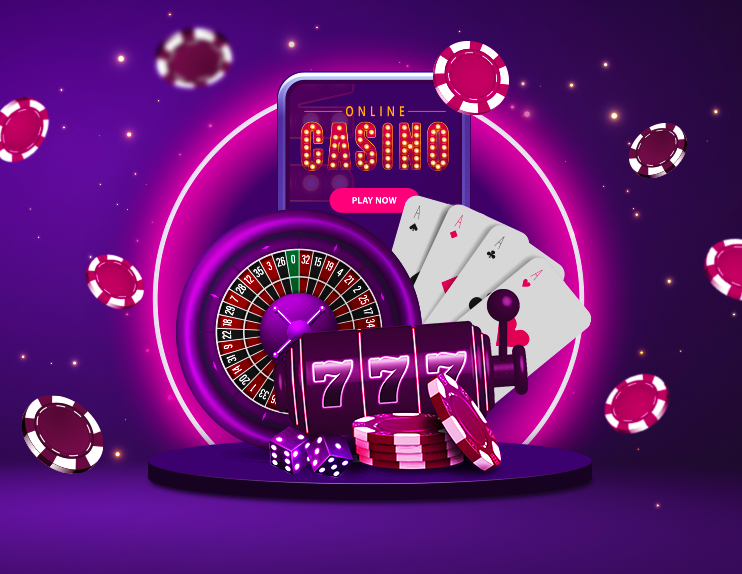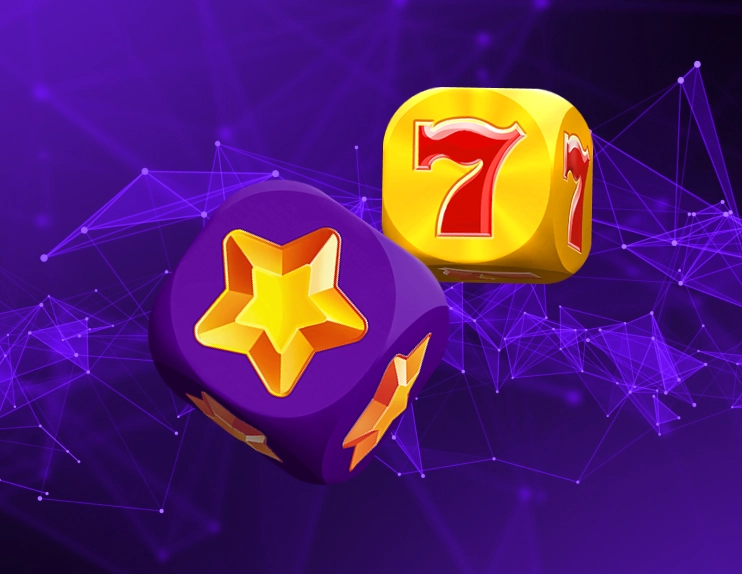
Starting a crypto casino: everything you need to know
The rapid growth of the cryptocurrency market and the prosperous online gambling industry have opened the door to a new business model — crypto casinos. With more players using digital assets for fast and secure payments, many entrepreneurs are now exploring how to start a crypto casino and take advantage of the growing demand.
By blending the iGaming business with crypto tech, operators can launch casinos that skip slow banks and offer borderless access. In this guide, you will find what it really takes to enter the market, from building the platform to handling payments and staying compliant.
What is a crypto casino?
A crypto casino is an online gambling platform that allows players to deposit, place bets, and withdraw using cryptocurrencies like Bitcoin, Ethereum, or USDT. Unlike traditional online casinos, which rely on fiat payments processed by banks or third-party services, crypto casinos run on blockchain wallets, offering faster transactions, lower fees, and more privacy.
There are four core models in this space: conventional online casinos, crypto casinos, blockchain casinos, and dice sites — each with its own concept and mechanics.
A traditional online casino is your standard gambling site. Players use euros, dollars, or other fiat currencies, often registering with ID, and going through verification. As a rule, payments are processed via cards, e-wallets, or bank transfers. These casinos are heavily regulated, but often slow and limited by geography.
A crypto casino keeps most of the traditional setup (games, layout, centralized operation), but replaces fiat with crypto payments. Players can still register, but deposits and withdrawals are handled via a blockchain network, cutting delays and reducing friction. Many platforms also let users play without going through KYC procedures — at least until they hit certain deposit or withdrawal limits.
A blockchain casino takes things further. These platforms run on blockchain technology entirely. That means games, rules, bets, and payouts are all powered by smart contracts. There is no central operator – just code. This model offers full transparency and trust, but requires users to understand wallets and smart contract features.
Then there are dice sites, which are often ultra-minimalistic gambling platforms. They are among the earliest types of crypto gambling. Users bet on a simple roll outcome, often with very low house edges. These platforms usually run fully on-chain and appeal to experienced crypto users who prefer speed and simplicity.
Here is a quick breakdown:
| Aspect | Traditional online casino | Crypto casino | Blockchain casino | Dice site |
|---|---|---|---|---|
| Currency | Fiat only | Crypto-first, some allow fiat | Crypto-first, some allow fiat | Usually crypto only |
| Transactions | Slow (bank, intermediaries) | Faster (crypto wallets) | Instant (on-chain, wallet-based) | Instant (wallet-based) |
| Transparency | Low – centralized system, no public verification | Moderate – transactions are visible, gameplay is mostly centralized | High – outcomes and transactions stored on-chain | Very high – all bets and outcomes publicly recorded |
| User control | Limited – users rely fully on the platform for results and fund handling | Moderate – users control funds, but gameplay is still managed by the platform | High – users interact directly with smart contracts, no central control | High – users place bets directly from wallets, no middleman |
| Anonymity | Low – full KYC required | Medium – KYC may not be required until certain limits are met | High – most require only a wallet | High – no registration required |
| Fairness verification | Low – outcome logic hidden | Medium – some provably fair games | High – provably fair by default | Very high – provably fair using open-source algorithms |
| Registration | Always required | Optional/Minimal | Often wallet-only | Wallet-only |
Each model serves a different audience. As crypto adoption grows, the gap between traditional and decentralized gambling continues to widen, opening the door for more flexible, user-first casino experiences.
Why start a crypto casino?
As the crypto trend grows, more players are turning to digital assets for fast, secure payments, and the iGaming space is quickly adapting. From startups to major operators, many are launching crypto-denominated platforms that offer more flexibility and reach.
A crypto casino runs on technology that allows lower fees, quicker transactions, and access to markets where fiat banking is slow or restricted. This makes it ideal for global scaling. With the rise of provably-fair tech, players also gain more trust — knowing the results are verifiable and can’t be altered.
Beyond the tech, launching a crypto casino gives you the freedom to fit your casino brand to a specific niche. You can target privacy-focused users, tap into DeFi ecosystems, or build features around tokens and rewards.
Key benefits of running a crypto-friendly casino
The development of crypto casinos has introduced a more transparent and accessible model for both operators and players. From better online casino payment methods to fully provably fair games, this space offers tools and features that traditional gambling sites simply can’t match. Below, we break down the key advantages of setting up a crypto casino in today’s competitive iGaming market.
Anonymity and privacy
Many users are drawn to crypto gambling platforms because they don’t need to share personal data upfront. Most crypto-friendly casinos allow players to register with just a wallet address, skipping the lengthy forms and identity checks common in fiat-based platforms. This builds trust and attracts more players, especially in places with unclear gambling laws (gray areas).
Instant transfers and lower fees
Blockchain-based transactions allow for quick deposits and withdrawals without the need for banks or intermediaries. This means near-instant access to funds and lower transaction fees — a win for both players and operators. Compared to traditional online casino payment methods, the cost savings can be significant, especially when scaling globally.
Global access and financial inclusion
Because crypto casinos don’t depend on traditional banks or payment processors, they offer easier entry for users in underserved regions. This opens access to new markets, which is a huge advantage when setting up a crypto casino with global growth in mind. On top of that, borderless access also helps reduce payment friction and delays.
Decentralization and transparency
In crypto-friendly casinos, decentralization is a core strength. Game logic and payouts are often managed by smart contracts, which means players don’t need to rely on a central authority to guarantee fairness. Everything is recorded on-chain, making the process fully transparent. Unlike conventional platforms that work behind closed systems, users can verify transactions and game outcomes in real time, reinforcing the value of provably fair algorithms.
Improved security
Using blockchain tech means less reliance on centralized data storage and fewer attack points for cybercriminals. Player funds are held in smart contracts or decentralized wallets rather than stored in a platform-controlled account. This makes hacking attempts more difficult and enhances the overall safety of your casino.
Innovative game design
The rise of crypto gambling has opened the door to more flexible casino game development. Blockchain infrastructure supports features like NFT-based player rewards, progressive prize pools, and token-based voting systems that let users influence upcoming games and promotions. These tools are changing how online gambling works, making it more interactive, transparent, and tailored to the player experience than traditional slots or table games.
Tax efficiency and crypto growth
In many jurisdictions, earnings held in crypto may be subject to different tax rules than fiat income. While this depends heavily on local laws, it can offer certain efficiencies for operators, especially in early growth stages. At the same time, the rising value of crypto means that holdings may increase over time, giving your platform additional upside beyond standard revenue.
How to plan your crypto casino business strategy
Before launching your platform, you need more than just an idea — you need a plan. This section walks you through the key steps to building a sustainable crypto casino business.
Understanding the market
Before building your platform, it is important to get a clear picture of the current market. Online gambling is expanding fast, and crypto casino strategy is quickly becoming a major part of it. More players now expect faster withdrawals, extra privacy, and decentralized tools, pushing demand for crypto-first casinos.
Start by checking what other platforms are doing. Read player reviews, explore how they handle payments, and look into the games and features they offer. Focus on newer brands doing something different — not just accepting crypto, but improving how users play and interact. That is where you will find ideas and gaps worth targeting.
Choosing a business model that fits
There is no single way to make a Bitcoin casino. Some platforms run fully decentralized, others stay centralized, but support cryptocurrency payments. You will need to decide whether to focus on a full-scale sportsbook, a slot-focused casino, or a minimal model built around simple games like dice.
Cada modelo afecta la infraestructura tecnológica, las licencias y el marketing necesarios. Considere el tipo de jugadores a los que se dirige y decida si son usuarios de criptomonedas, jugadores ocasionales o jugadores que priorizan el uso de dispositivos móviles y buscan apuestas rápidas.
Budgeting and cost planning
Launching a crypto casino can be minimal or high-scale, depending on your goals. Costs range from white-label solutions to full-stack development, while you should also budget for game licensing, marketing efforts, and ongoing support (e.g., customer service, bug fixes, and platform updates).
Make sure to plan for all core expenses: platform setup, legal fees, crypto wallet integration, hosting, and user acquisition. If you are starting small, focus on essentials first: a clean, mobile-friendly platform, a few standout games, and smooth wallet functionality. Scale up gradually as you see real interest and player activity in your chosen niche.
Navigating legal and regulatory risks
Gambling laws vary by country, and crypto adds another layer of complexity. Whether you are operating from Europe, Latin America, or offshore, check local rules around digital assets and online betting.
In some jurisdictions, you may need a full gaming license. Others allow limited operations if crypto is used as a utility token. Either way, you must understand anti-money laundering (AML) rules, Know Your Customer (KYC) thresholds, and data privacy requirements. Start by consulting a legal expert who understands both crypto and iGaming laws.
Positioning your crypto casino for long-term growth
Once you have covered the basics, focus on how you want to position your casino. It could stand out by being easier to use on mobile, offering a quicker sign-up, or building in custom features like staking. Set that direction early so your brand has a clear identity from the start.
And don’t ignore community building. Crypto audiences expect transparency, updates, and interaction. Launch a community hub (e.g., Discord server, Telegram/WhatsApp channel, Instagram/Facebook page), publish roadmap updates, and let users take part in shaping the future of your casino. Your long-term success will depend not only on your platform’s tech, but also on how well you adapt and grow. Keep an eye on innovation and be ready to pivot as the development of crypto casinos continues.
How to start a crypto casino
.webp)
Starting a crypto casino goes beyond just adding cryptocurrency wallets to an existing platform. To stand out in today’s market, your casino needs solid architecture, smart contract integration, and a smooth user experience. Below is a practical breakdown of the key components you will need (both technical and business) when figuring out how to make a Bitcoin casino that works healthy.
Frontend development
Your frontend is what users interact with — the interface they see when they visit your casino. This includes the landing page, account system, game lobby, deposit/withdrawal screens, and mobile layout.
The website should be clean, responsive, and fast. Crypto users often prefer minimal, app-like interfaces that load quickly and work seamlessly across devices. For this reason, many developers use modern frameworks like React or Vue.
Make sure your wallet connection is intuitive and supports a secure payment gateway along with global coverage (e.g., MetaMask, Trust Wallet). This is especially important if you are starting a crypto casino targeting DeFi users or regions with limited access to traditional banking.
Backend infrastructure
The backend handles game logic, user data, payment processing, and security. Even if you plan to use smart contracts, you will still need a robust backend to manage services like login sessions, analytics, KYC triggers, and real-time game tracking.
Focus on a backend architecture that stays stable as user activity grows, while keeping all data secure. Most teams choose Node.js, Python, or Golang and run their services through cloud platforms like AWS or DigitalOcean. You will also need to integrate blockchain APIs to read on-chain data and confirm wallet activity.
Database setup is also key, even if most user funds and bets are handled off-chain. Tracking player history and gameplay stats will improve your retention tools and support systems.
Smart contracts
Smart contracts handle transparent logic and payouts, meaning players don’t have to trust a central server. For example, a dice roll contract might use verifiable random functions (VRFs) to determine results, record them on-chain, and instantly transfer winnings to the player’s wallet.
These contracts are usually written in Solidity (for Ethereum-based chains) or Rust (for chains like Solana). Be sure to audit your contracts for security flaws before going live — one exploit could cause immense damage.
Security and compliance layers
Security is a major factor from day one. This includes standard web protection (SSL, DDoS filtering, firewalls) and blockchain-specific risks (smart contract exploits, wallet drainers). Run regular audits on your smart contracts using third-party services like CertiK or Hacken, and keep all systems updated.
Additionally, you will need to build in AML and KYC tools — either custom or via external services like Sumsub or ShuftiPro. Even if you operate in a low-regulation region, it is good practice to include basic checks once player activity exceeds thresholds. This helps avoid unwanted scrutiny and ensures a smoother path if you pursue licensing later.
Game content integration
You can either develop games in-house or integrate with existing crypto casino software providers. Many platforms use APIs or plugins to add slots, table games, crash games, or even peer-to-peer betting systems.
Some developers now offer blockchain-ready game packages, where the outcome logic is already built into the contract. Others let you tweak reward logic, RTP settings, or visual themes to better match your brand.
If you want to support classic online casino games, you can also integrate them from traditional suppliers — just make sure they are licensed and compatible with your payment setup.
Testing and deployment
Before launch, you will need to test everything, including gameplay fairness, wallet connections, speed, UI, and mobile performance. Use staging environments and testnets to simulate real bets without risking funds. Test across browsers, devices, and wallet types to avoid usability issues. When you are confident in the build, go live, ideally with a soft launch to a limited audience before full-scale rollout.
Getting licensed
Before launching a crypto casino, securing a valid gaming license is key — not just for compliance, but also for player trust. While licensing requirements vary, most regulators now enforce clear rules around Know Your Customer (KYC) checks and Anti-Money Laundering (AML) procedures.
Popular jurisdictions include:
- Curacao — The most common starting point. Relatively fast to obtain (2–3 months), with lower setup fees (typically around €23,000). Ongoing costs include monthly fees (€2,000). KYC/AML enforcement is lighter, but still required.
- Malta (MGA) — A respected EU license with strong credibility. You will pay a one-time €5,000 application fee, plus an annual fee of €25,000 for multi-vertical operators. Compliance contribution ranges from €15,000 to €600,000, depending on revenue tier and license type. Approval takes up to 4 months and includes full KYC onboarding, responsible gambling tools, and strict AML checks.
- Isle of Man — Known for welcoming crypto gambling operators under its Online Gambling Regulation Act (OGRA). A full license costs approximately €43,000 per year, plus a €6,200 application fee. A network or token-based software solution supplier license costs around €61,500 annually, with the same application fee. The approval process usually takes 3–4 months.
Other, but less popular options include Kahnawake, Gibraltar, and Anjouan (Comoros) — each offering varied costs, processing times, and crypto compatibility.
The UK Gambling Commission (UKGC) is another widely respected license, but currently does not support crypto gambling. Operators must avoid crypto transactions under a UKGC license or use alternative setups with caution.
Licensing may seem complex, but it lays the groundwork for partnerships, fiat integrations, and long-term growth. Choose a jurisdiction that aligns with your operational model and scaling plans.
Crypto casino software foundation
When you are starting a crypto casino, the software you choose will shape almost every part of the experience, from how fast games load to how players move funds. And it is not just about getting good games. You also need a system that works well on mobile, handles crypto integration reliably, and can grow with your user base. Below, we break down what to look for in game providers and platform partners.
Website design and UX
The user interface should feel intuitive from the moment someone visits your homepage. Focus on clean navigation, fast loading speeds, and layouts that make it easy to switch between sections like slots, live table games, and promotions. Whether users are connecting through a laptop or mobile device, the experience should remain consistent.
For crypto gambling platforms, wallet connection and dashboard access should feel seamless. Consider building a dynamic dashboard that shows available balance in multiple coins, recent gameplay, and provides instant access to bonuses or support.
Mobile optimisation
More than half of online casino traffic now comes from mobile. Your crypto casino site must run smoothly across all major screen sizes and browsers. Choose a software supplier that offers native mobile support or responsive design out of the box.
Also, test wallet connections and in-game currency conversion tools on mobile, since these features often behave differently than on desktop. Players expect the same fast, smooth gameplay no matter what device they use.
Game portfolio and features
Look for a wide and varied online casino games catalogue, including slots, live dealer tables, crash games, and provably fair content. Your partner should support both traditional formats and newer styles of gameplay that appeal to crypto audiences.
Support for provably fair games is key. These use open-source algorithms or smart contracts to confirm fairness — a core feature in the crypto space. Being able to show that your games are transparent builds player trust.
Don’t forget about multi-wallet support. Letting users deposit in different coins (e.g., BTC, ETH, USDT) and convert them instantly inside the platform is now a must-have. A flexible currency layer helps reduce friction and makes your casino more attractive globally.
Technology and innovation
The best crypto game provider should already be exploring new AI technologies, such as automated player insights, real-time fraud detection, or even dynamic bonus personalisation. These tools help boost operations and give users a more tailored experience.
Also, make sure the platform is built for growth. You want a backend that can handle spikes in traffic, game updates, and new wallet protocols without downtime.
Handling crypto payments
Running a crypto casino means building more than just an active website — your payment setup needs to handle digital assets the right way. Unlike traditional casino payouts, crypto lets you process transactions almost instantly and with lower fees. However, to make that work, your system needs proper cryptocurrency integration, covering wallet access, legal compliance, and protection against market volatility. Below, we outline what a solid crypto payment architecture should look like.
Supported cryptocurrencies
Start by deciding which coins your platform will support. Most casinos offer Bitcoin, Ethereum, and stablecoins like Tether or USDC for smoother conversions. Some expand into Binance Coin, Tron, or Solana to appeal to broader audiences. To reduce risk from volatility, many operators hedge player balances with stablecoins, locking in value at the point of deposit. This helps facilitate predictable crypto casino payouts, even during market swings.
Crypto payment architecture and wallet management
You will need a combination of hot and cold wallets. Hot wallets handle active transactions and must be tightly secured, while cold wallets store reserve funds offline to reduce exposure. Crypto payment processors like CoinsPaid help manage this setup with built-in AML checks, real-time balance management, and automatic rebalancing across wallets.
All player actions (deposits, withdrawals, in-game spending) should pass through API integrations connected to your wallet system. Look for providers that support multi-chain assets, fast confirmations, and low-latency settlements. These tools simplify your backend while offering better control over transaction flows.
Smart contract integration
When your casino includes gameplay driven by smart contracts, such as provably fair games, jackpots, or auto-payouts, your payment system must interact with these contracts seamlessly. A proper integration allows the contract to trigger instant crypto casino payouts when win conditions are met, without manual approval. This improves speed, reduces fraud, and adds transparency to your platform.
Security measures and compliance
All transferring data must be protected by SSL encryption to guard against cyberattacks. On the compliance front, your casino must meet licensing rules, especially regarding anti-money laundering (AML) and Know Your Customer (KYC) thresholds. Even if operating in a crypto-first region, failing to meet these standards could lead to fines or license revocation.
To stay ahead of fintech regulation, work with compliance-ready tools that support transaction monitoring, wallet blacklists, and geo-blocking based on user location. These safeguards will help to make sure your casino meets regional requirements and adapts as cryptocurrency’s legal status continues to evolve.
Top cryptos for online gambling
The most popular cryptocurrencies used in online gambling today are chosen for their speed, cost-efficiency, and market stability. Below is a breakdown of the top options in 2025, based on popularity and suitability for online gambling platforms.
| Coin | Pros | Cons |
|---|---|---|
| Bitcoin (BTC) | Widely accepted, strong brand trust, high liquidity | Slower confirmations, higher fees during network congestion |
| Ethereum (ETH) | Smart contract support, used in most blockchain casinos | Transaction fees can rise during high network activity, making small bets costly |
| Tether (USDT) | Stable value, good for avoiding price swings | Centralized, may face legal issues |
| Binance Coin (BNB) | Low fees, fast settlements | Acceptance is lower than BTC/ETH |
| Ripple (XRP) | Near-instant transfers, low costs | Centralized governance; occasional delisting concerns |
| Solana (SOL) | Fast, cheap, popular in NFT-based gambling | Occasional network outages |
| Cardano (ADA) | Growing adoption and ability to support provably fair tech in future games | Limited acceptance; slower transaction than SOL |
| Litecoin (LTC) | Low fees, faster than Bitcoin, supported by many wallets and casinos | Less integrated into smart contract ecosystems; lower adoption in games built on DeFi or NFT logic |
| Dogecoin (DOGE) | Popular for tipping, very cheap to send, accepted by many wallets, ideal for micro-bets and high-speed crypto gaming | Rarely used as the main currency in casino platforms; high price volatility |
| Tron (TRX) | Stable and fast, used at high-volume sites | Often associated with gray-market platforms |
These coins lead the list of most popular cryptocurrencies used for gambling in 2025, offering a blend of reliability, affordability, and ease of use.
How crypto volatility impacts your casino
The value of cryptocurrency can swing quickly, and that affects both the way players behave and how casino operators handle funds. These price movements play a direct role in everything from player decision-making to your platform’s financial stability.
For players, crypto-based winnings or losses don’t end with the result of the game. A win in Bitcoin or Ethereum might lose value if the market dips, while a small payout can become more valuable if prices rise. Some players cash out right away, while others pause deposits or choose stablecoins like USDT to avoid market risk.
On the operator side, crypto player traffic usually increases when prices are rising and drops when the market is going down. To deal with this, many casinos convert user deposits into stablecoins right after they arrive.
Managing your crypto balance also requires care. Keeping large reserves in volatile assets can cause losses if the market moves the wrong way. To reduce this vulnerability, casinos often split funds across multiple coins, monitor real-time exchange rates, and use automated tools for conversions. Staying aware of your cryptocurrency’s legal status is also key, especially in regions with specific tax or compliance rules.
Building a casino marketing plan
To start a crypto casino and grow it into a long-term brand, you require a solid platform with a smart, crypto-aware casino marketing plan. Conventional gambling advertising doesn’t always translate to this space. Instead, focus on strategies that align with your audience: decentralized users, privacy-focused players, and early tech adopters.
Search and content marketing
Start with a clear content marketing strategy. Crypto players often search for specific topics, such as how to use wallets, where to find the best provably fair games, or how blockchain gambling works. Publishing clear, keyword-rich guides builds traffic and trust over time.
Invest in SEO to improve visibility on search engines. This includes technical site optimisation, backlink building, and regular blog updates tied to crypto and iGaming market trends. The goal is to appear in front of users who are actively researching new places to play.
Social media engagement
Crypto players are community-driven. Build your presence across platforms like X (formerly Twitter), Discord, Telegram, and Reddit. Use these channels to post updates, run giveaways, and share user-generated content.
Social media engagement should go beyond just posting, and be about responding to feedback, teasing new features, and being part of the larger crypto gaming conversation. Being active in these spaces helps strengthen player loyalty and drive return traffic.
Affiliate and influencer marketing
Affiliate marketing deals remain one of the most powerful player acquisition strategies. Set up a referral program that rewards influencers and content creators for sending new traffic. Offer clear commission terms, real-time tracking dashboards, and fast crypto payouts.
Combine this with influencer outreach, especially YouTubers and streamers covering blockchain games. Just make sure your advertising remains compliant with platform rules and regional guidelines.
Paid campaigns and retargeting
While some paid marketing channels (like Google Ads) restrict casino content, crypto-friendly platforms and native ad networks offer effective alternatives. Retarget users who visited your site but didn’t register, and experiment with different setups to improve results.
In crypto iGaming, success often comes from precision, not just scale. A well-targeted, community-aware campaign can do far more than a broad-budget push.
Key takeaways
Starting a crypto casino is a complex process — it requires planning, the right tech stack, and a deep understanding of both the gambling and blockchain space. Here are the main points to keep in mind:
- Choose the right model: crypto-first, fully decentralized, or hybrid setup
- Build a strong payment system with wallet support and stablecoin options
- Focus on mobile-friendly design, fast UI, and provably fair game content
- Protect your platform with secure architecture, AML tools, and KYC triggers
- Track crypto volatility and adapt payouts, bonuses, or conversions accordingly
- Use a clear casino marketing plan — with SEO, social media, and affiliates
- Stay up to date with crypto regulation, explore new AI technologies shaping the industry, and select a suitable license for your region
BGaming supports operators ready to enter the blockchain gambling market. From game integration to crypto-ready solutions, our team helps you build a secure, scalable, and compliant platform tailored for crypto players.
What is the first step to launching a Bitcoin casino?
To launch a Bitcoin casino, you will need a legal framework, a secure platform, cryptocurrency payment integration, and game content. Before attracting your first players, focus on compliance, smooth wallet connections, and clear branding.
Is it legal to operate or play at a crypto casino?
Crypto gambling legality depends on your region. Always check local laws before launching or joining a crypto casino to avoid compliance risks.
How do online casinos that accept crypto work?
Crypto casinos let users deposit, play, and withdraw using digital coins like BTC or USDT. Transactions are processed through blockchain wallets, making gameplay faster and often more private than conventional gambling platforms.
Which cryptocurrency is most trusted for online betting?
Bitcoin remains the most popular and reputable cryptocurrency for online gambling. It is widely accepted, secure, and supported by most platforms. Many players prefer Bitcoin for its liquidity and long-standing credibility in the cryptospace.
Can you explain what a Bitcoin gambling protocol is?
A Bitcoin gambling protocol is a system that uses blockchain technology to verify bets, outcomes, and payouts. It facilitates fairness and transparency by recording all actions on-chain, often without needing a central operator.





